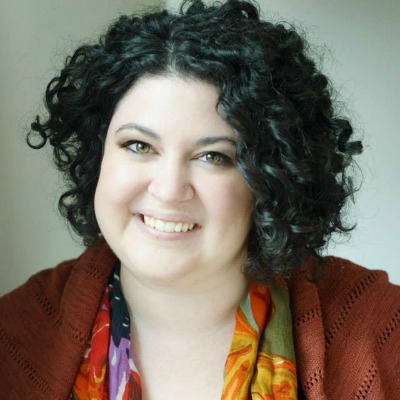Westworld and the Question of Consciousness
Brittany Deininger wrestles with the hit show Westworld and the questions it raises of consciousness and what it means to be human.


Brittany Deininger received her MA in Theology & Culture in 2017 from The Seattle School where she explored themes of memory, imagination, poetics, and the creative act as tools for transformation and healing. She received her BA in Poetry from The College of Idaho and currently serves as summer faculty at The Grunewald Guild teaching writing as a spiritual practice. Her work has been featured in anthologies and the On Being blog. When she is not writing, you’ll find her at the local independent cinema or taking in the beauty of the Northwest.
Brittany Deininger wrestles with the hit show Westworld and the questions it raises of consciousness and what it means to be human.
Brittany Deininger offers a ritual for waking that is helping her learn how to remain close to herself as she begins each new day.
As we move through National Poetry Month, Brittany Deininger shares some of her favorite contemporary women poets, reminding us that poetry is a place of radical resistance and beautiful intersectionality.
Brittany Deininger explores the ways that metaphors shape how we view the world, speak of God, and think about that which seems beyond language.
Brittany Deininger explores how Three Billboards, like Flannery O’Connor’s A Good Man Is Hard to Find, challenges our conceptions of anger, violence, and the polarities of humanity embodied in each of us.
Brittany Deininger turns to the wisdom of pilgrims and scholars as she writes about “the art of beginning” and the beauty of starting a new journey.
“Wrong solitude vinegars the soul, right solitude oils it.” – Jane Hirshfield When we think of the tools of an artist, we may visualize tangible elements of the worktable: brushes, typewriters, endless spools of thread and paper and canvas. However, the intangible means nearly every artist, theologian, and thinker employs is something we both crave […]
If I had to select one book of poetry that is the most dog-eared in my library, the most quoted in classes at The Seattle School, and the most used by friends in times of celebration and need, it would be, To Bless the Space Between Us by John O’Donohue. A master poet, O’Donohue has taught us that some of the most powerful and intimate words are the invocation, “May you…” Those two little words awaken our longing and desire. They strengthen our presence and belonging. They make a place for the Holy Spirit to dance. They evoke light and life and yes.
The woman who anoints Jesus’ feet is a familiar story that appears in each of the four gospels. However, as I read it this year, in the midst of deep political and social unrest, it occupied my imagination in a new way and left me curious about the psychological and theological implications of a universal human emotion: disgust. Do we really see one another?
It happens when a loved one is missing in a hurricane. It happens when a husband with Alzheimer’s doesn’t remember the day he married his partner. It happens when a child can’t get the attention of a depressed parent. An unnamable uncertainty creeps up in us. Family therapist Dr. Pauline Boss coined a term for this developing psychological area of study known as ambiguous loss.
Image: George Kraychyk/Hulu Why do we fear the power of empire? Why do we hope for resistance? Here, Brittany Deininger, a recent graduate of The Seattle School, shares how dystopian literature like The Handmaid’s Tale calls us to examine these questions while speaking to our current cultural moment. Margaret Atwood’s book, The Handmaid’s Tale, has […]
Standing on the legacy of Lauren Sawyer (MA in Theology & Culture, ‘14), founder of LIT Magazine, Issue 6 continues the tradition of making space for students and alumni of The Seattle School to share their literary work that has been part of their practices and processes of coming to know. 2017 saw a record […]